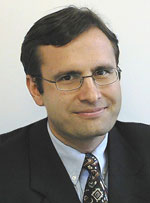
The audio file of my interview with Tim Waidmann (about 20 minutes long) is available for download/podcast, or may be played here:
Tim Waidmann – Urban Institute – Medicaid Expansion
Here is a full transcript of the interview.
The Census Bureau has made these researchers’ lives easier by collecting data that allows for the running of a natural experiment that answers the question: How will implementation of the ACA affect the percentage of household income spent on health care by low-income Americans? One of the interesting points highlighted by Waidmann is that the state in which the highest proportion of low-income household income is spent on health care (surprise: Nevada!) is not the state in which Medicaid coverage is least comprehensive, the state in which health care is most expensive, or the state with the greatest prevalence of poverty (though some of those states show up in the top ten).
All of the states with health care access and payment problems for low-income residents would be well-advised to consider the opportunities to expand coverage under the ACA Medicaid expansion provisions. Some — including a couple at the top of Waidmann’s list, as of this writing — remain dead-set against the Medicaid expansion program (though most of the states that challenged the ACA are more than willing to accept the increased FFP for the Medicaid expansion to cover residents at up to 133% of the Federal poverty level, to the relief of the membership of their local hospital associations and other providers, which have been providing free care to folks who will be the beneficiaries of the Medicaid expansion). Some are exploring opportunities for creative alternatives to Medicaid expansion per se: Consider the Arkansas premium support plan, which will use Medicaid expansion dollars to buy private health insurance for those who would otherwise be eligible to enroll in an expanded Medicaid program.
If you’re looking for a scorecard, you can follow state-by-state Medicaid expansion activity at statereforum.org.

